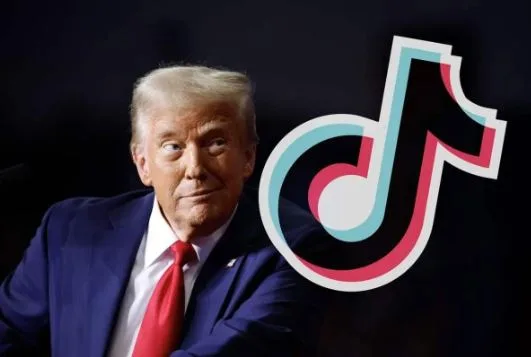TikTok US Operations Get Green Light Under New Deal
President Trump signed an executive order in late September approving the transfer of TikTok’s US operations to a consortium of American investors. The deal values the platform’s domestic business at roughly $14 billion and ends months of uncertainty that nearly forced the app offline earlier this year.
The agreement keeps ByteDance as a minority stakeholder with less than 20% ownership while handing operational control to US-based investors. Oracle will serve as the platform’s security provider and monitor all American operations. Trump called the arrangement a win for the 170 million US users who depend on the app for content creation and business.
Deal Details Emerge
Under the approved framework, a new joint venture will manage TikTok’s US application. The company gets a seven-seat board of directors, with ByteDance selecting just one member and staying off the security committee entirely. American investors hold the majority stake and make decisions about the algorithm, content moderation, and code updates.
All US user data will move to Oracle’s cloud infrastructure on American soil. The arrangement includes monitoring software updates and retraining recommendation models using only domestic user information. ByteDance engineers spent much of 2025 preparing a split version of the codebase that would function independently from the main platform.
Vice President JD Vance noted the $14 billion valuation could climb significantly higher. CFRA Research estimated the US business might reach $60 billion if market conditions improve. The platform generates substantial advertising revenue and supports thousands of content creators who built careers around the app.
From Ban to Compromise
Congress passed the Protecting Americans from Foreign Adversary Controlled Applications Act in April 2024 with bipartisan backing. The law gave ByteDance until January 2025 to sell or face a nationwide ban. Lawmakers cited concerns about data collection and potential Chinese government access to American user information.
The app went dark briefly on January 19, 2025, displaying a message about the ban. Services resumed hours later after Trump promised to broker a solution. He issued the first of four enforcement delays on his inauguration day, extending negotiations throughout the year.
The Supreme Court upheld the ban law in January despite TikTok’s First Amendment challenge. ByteDance argued the measure violated free speech rights for both the company and its users. The court disagreed, finding national security concerns outweighed constitutional objections.
Trump shifted his stance dramatically from his first term, when he tried shutting down the platform. He credits TikTok with boosting his support among young voters in the 2024 election. The president received 36 billion views on the app last year and won the youth vote by 34 points.
User Response and Market Impact
The deal sparked mixed reactions from TikTok’s user base. Content creators expressed relief that their primary income source would continue operating. Small businesses that rely on the platform for advertising welcomed the news. Some users raised concerns about potential changes to the algorithm or content policies under new ownership.
The regulatory pressure mirrors patterns seen across digital industries. Government restrictions often push users toward alternative platforms that operate outside traditional frameworks. Similar dynamics play out in other sectors where consumers seek options beyond mainstream regulated services. British users, for example, turned to Non GamStop Sites when looking for gaming platforms without UK Gambling Commission registration requirements.
Tech analysts expect the TikTok model to influence future negotiations between Washington and Beijing. The framework could serve as a template for handling other Chinese-owned apps operating in America. Several smaller platforms face similar scrutiny over data practices and foreign ownership.
Market observers question whether the split will change TikTok’s core experience. ByteDance operates Douyin, a China-only version with strict content controls and government partnership agreements. Some worry the US app might adopt comparable moderation practices even under American ownership.
What Happens Next
The formal transfer process will take several months to complete. Investors need to finalize purchase agreements and establish the new corporate structure. Oracle must set up the security infrastructure and begin migrating user data to domestic servers. The transition aims to finish before the current enforcement delay expires in mid-December.
Trump plans to discuss the arrangement with Chinese President Xi Jinping to confirm Beijing’s approval. Both governments linked TikTok’s fate to broader trade negotiations, including tariff reductions and related concessions. Maria Pechurina of Peacock Tariff Consulting noted the deal could help de-escalate tensions between the two countries.
The agreement leaves open questions about content moderation and algorithm transparency. Critics worry about potential censorship or bias in recommendation systems. Privacy advocates want stronger guarantees about data protection beyond Oracle’s monitoring role.
Congress may revisit the underlying law depending on how implementation proceeds. Some lawmakers already proposed additional restrictions on foreign investment in social media companies. The TikTok case set a precedent that could affect future legislation about technology and national security.
ByteDance declined to comment on the deal beyond confirming its commitment to keeping the platform available for American users. The company faces similar regulatory challenges in other markets, with several European countries investigating its data practices. How the US arrangement plays out will likely influence those proceedings.
The platform’s cultural impact extends well beyond entertainment. Political campaigns use TikTok to reach voters, activists organize through the app, and businesses depend on it for customer engagement. Preserving access while addressing security concerns became a delicate balancing act that dominated headlines for nearly two years.






